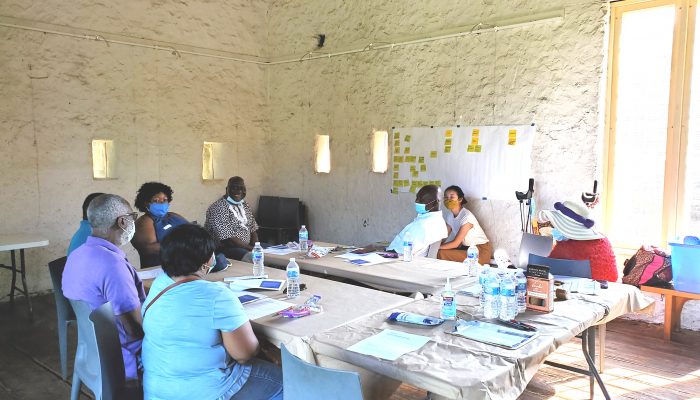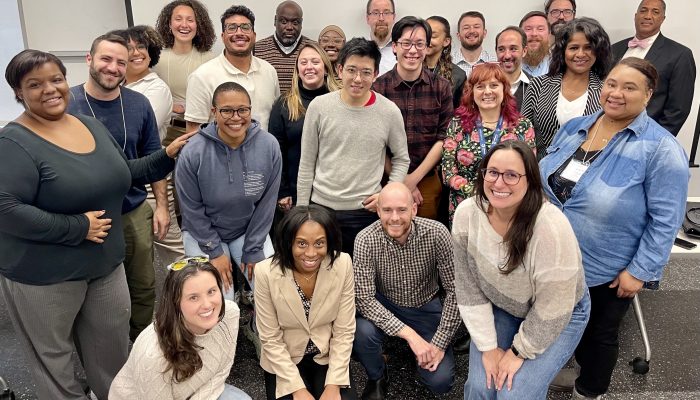The Operations Transformation Fund (OTF) blog series gives a brief overview of its projects. This post focuses on the PHL Service Design Studio (SDS) and the Mayor’s Office of Civic Engagement and Volunteer Service’s (MOCEVS) Equitable Community Engagement Toolkit.
The Toolkit looks to change how the City thinks about, plans for, and engages with Philadelphia’s communities. Community input is necessary to shape government policies, programs, and services.
Community engagement is how the City:
- connects communities to programs and services;
- understands their needs;
- shares decisions; and
- works in solidarity with neighborhood-based community organizers.
This Toolkit seeks to create guidance, training, and a community of practice to help City engagement practitioners collaborate with Philadelphians in more equitable ways.
What stage is this project at now?
The key phases in creating the Toolkit are:
- Phase 1—the SDS worked with City staff, community leaders, and residents to better understand engagement challenges, needs, and more.
- Phase 2—after interviews, focus groups, co-design sessions, and advisor meetings, SDS created 45 summaries and 3 reports to share with stakeholders. Additionally, the team built a database to better understand patterns in the feedback from City staff and community members.
- Phase 3—SDS developed a foundational strategy for the Toolkit (e.g., vision and success metrics) and mapped the guidance, tools, and training needed to fulfill that vision.
So, what’s next? Enter: Phase 4.
- Phase 4—the Studio has hired two content strategy fellows, one user experience strategy fellow, and a software developer. They will help write, design, and build the Toolkit on phila.gov. The team will also create a community advisory group who’ll oversee the piloting of the Toolkit with City agencies and communities. And MOCEVS will hire an equitable community engagement manager and trainer who’ll embed Toolkit-centered practices across the City of Philadelphia.
Once a prototype of the Toolkit is released, the team will start training City engagement practitioners to support their everyday work.




